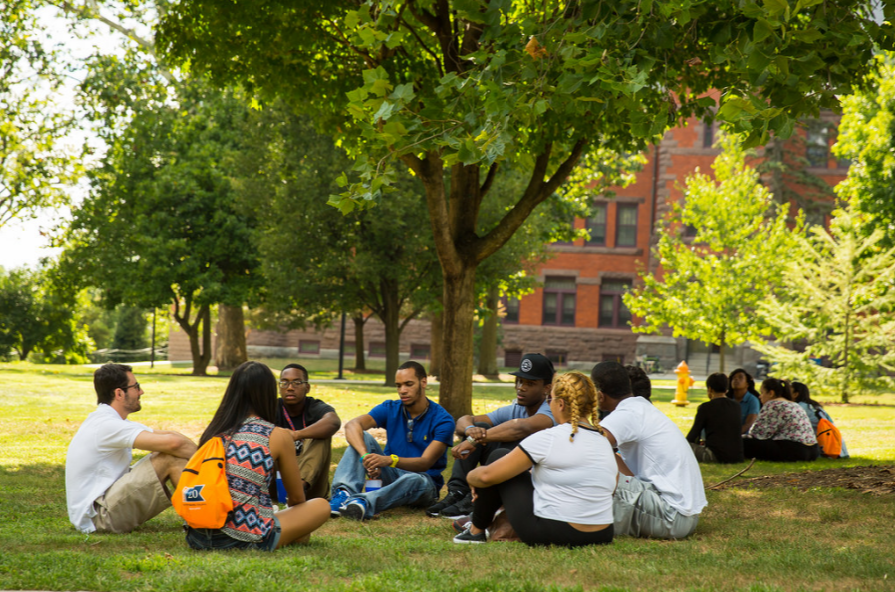Office of Multicultural Engagement provides new resources to students of different backgrounds
By Benjamin Pontz, Contributing Writer
When students planned a forum last January to discuss issues of race on the Gettysburg College campus, panelists were candid.
“I do not see myself represented in this curriculum,” one student of color said.
“I had to silence my thoughts to appease my professor,” said another student.
Based on these reflections, college administrators knew they needed to enact more aggressive changes to improve the campus climate.
“It was clear that we need a broad institutional effort to address the climate issues on campus and that the new office could play a key role in that effort,” said Julie Ramsey, Vice President for College Life and Dean of Students. She noted that the population of domestic students of color at Gettysburg College has nearly doubled in 10 years from 182 in 2005 to 355 last fall, which further spoke to the need for additional resources.
The principal step that the college has taken for the 2016-17 academic year is organizing a new campus department, the Office for Multicultural Engagement (OME). Dean Ramsey announced the hiring of Dr. Darrien Davenport as the office’s new executive director. He begins in October, but recently promoted Monique Gore, the Director of Multicultural Programming and Outreach, is already on the job.
As a 2006 Gettysburg College graduate, Gore identifies with students who feel they are not sufficiently represented at the college.
“My experience was challenging in regards to being a black woman on a predominantly white campus,” she explained. “That is what has shaped my drive and passion working in this newly created office because I know that we as an institution are able to provide the ‘Gettysburg Great’ experience for everyone.”
Gore has already begun work to help students of color, first-generation students and other underrepresented minorities feel welcome on campus. Last week, OME sponsored a two-day pre-orientation program that approximately 45 students attended as a way to get acclimated to the campus.
Students had upper-class ambassadors, met with faculty and connected with programs such as the Center for Global Education to begin thinking about potential study abroad opportunities early in their academic careers. Gore believes the program helped students get acclimated to college life, a sentiment echoed by Joshua Bryan-Brown, one of the first-year students who attended the orientation.
“It was a great chance for me to meet new people that I am now really close friends with,” said Bryan-Brown.
In addition to the orientation program, OME provides one-on-one meetings to help students take full advantage of their experiences. For Bryan-Brown, he hopes that includes a double major in psychology and chemistry. Another pre-orientation participant, first-year student Nelly Isodoro, said the program helped her on a more fundamental level to acclimate to Gettysburg, which is a stark juxtaposition with her native Los Angeles.
“I felt more at peace with my decision of coming to Gettysburg College,” she said. “OME has not only allowed me to be around people that I am most comfortable with but it has also been a gateway to meet more people from many other places and ethnicities.”
Aside from working with students, OME will be working with faculty to give them the “resources they need to feel culturally competent” to address issues that may arise in their classrooms. Gore believes that the faculty wants to have an inclusion advocate on all panels for open positions “to make sure we’re not picking from a pool of straight white men.”
As evidenced by the flurry of activity already going on in the OME building on North Washington Street, the papers and charts all over Gore’s office and the ebullient manner with which she talks about her new department, Gore has big plans for the coming year. She couldn’t narrow it to just one priority, so she shared two.
“One: to make sure that we are addressing the needs that students vocalized in the spring; and two: reaching out and ensuring that the greater campus community knows that we are a resource for everyone and engaging with and collaborating as much as possible to be successful.”

